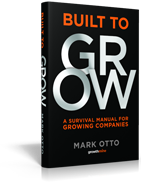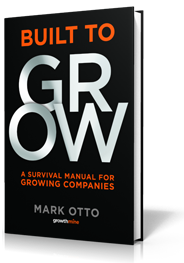
How to Identify High-Potential Employees

Do you have the leadership and managerial talent needed to grow your business? Developing your high-potential employees helps meet one of the biggest challenges of rapidly growing organizations: the ongoing need for leadership talent.
Growing a business requires growing leaders. As organizations grow, the need to focus on developing leaders becomes critical to long-term success.
Having a strong senior team is not enough. Growth demands leaders at all levels of the organization. As companies grow and make transitions from one stage of growth to the next, they need leaders to help run and grow the business.
But growing companies rarely slow down long enough to identify and develop the next generation of leaders. Instead, “doers,” star individual contributors, and technical experts are placed in leadership positions – the top sales rep, the brilliant engineer, the best accountant, the savvy IT genius – and magically expected to know how to lead and manage.
Some people can learn quickly and adapt to new leadership roles. Many cannot.
How do you know who to begin developing today so they will be ready when you need them for future roles? Consider these qualities:
- They know their stuff. High-potential employees develop skills and expertise that are critical to the business. But they avoid being typecast in specific roles by demonstrating the ability to change and quickly learn new things. They clearly understand where the business is headed and what role their individual contribution plays in getting it there.
- They have a mindset of continual improvement. The ability and willingness to learn are the most influential factors in the success of a young leader. High potential employees instinctively know that they will have to add new behaviors and develop new skills and knowledge to their repertoires in order to move to the next level. They take full responsibility for their careers.
- They have the respect of others. By demonstrating their knowledge and professionalism, high-potential employees earn the trust and respect of others. They have solid reputations for delivering results and taking their responsibilities seriously.
- They are driven. High-potential employees set high expectations for themselves. They aren’t just career-minded; their drive is also applied to the quality of their work. They have a strong work ethic and proactively seek new responsibilities, new knowledge, and new challenges. They have an ownership mentality and use their initiative to address issues without having to be told to do so.
- They are team players. High-potential employees know that technical skills are not enough to succeed. They are adept at developing and maintaining relationships. They know how to collaborate and work with others throughout the organization. They avoid infighting by including and communicating with the people necessary to solve problems or achieve goals. They are liked by their peers and are valued members of their teams.
- They have an entrepreneurial spirit. High-potential employees understand that growing businesses operate in an environment of uncertainty. They realize that regardless of the amount of planning and preparation they do, there are still risks involved in almost every decision. Yet they have the courage to make difficult decisions and take calculated risks, even though there’s a chance they could fail.
- They are coachable. Even though high-potential employees are confident in their abilities, they realize they have limitations. They are driven, but they are able to accept help. They not only welcome feedback, they actively seek out feedback that will aid in their development. They view mistakes as learning opportunities and rarely make the same mistake twice.
You want your bench full of people who are different than you and possess skills you don’t, but who have the traits that are essential to the continued success of the business. It’s your responsibility to create an environment where your high-potential people continue to grow and develop, so they will be ready for future roles.
Do you know where your next generation of leaders is coming from?






Great points, Mark.
Moving the wrong people into leadership roles is a major (all too common) growth hinderance in many companies. With many years in tech companies, I’ve had the “honor” of fixing many a broken sales organization that was built by promoting the “doers” to leadership positions.
A salesperson makes their number a few times, and they’re a rock star. They get promoted to a management position assuming their mojo will rub off on the rest of the team. Some times, by shear luck, these folks will succeed, that’s the exception. More often, they’re not a good leadership fit. They’re unhappy, the team suffers and the company goes through the whole cycle again, re-organizing year after year.
This is a case of using the wrong measurements (ie revenue) to predict leadership success. Metrics based on your list of qualities are much better.
Thanks for sharing
Thanks for stopping by, Marshall.
You are absolutely right! Top performing “doers” don’t magically become great people leaders just because they are given the title of “manager.” It requires ability, training, and practice to learn what is a very different set of skills.
When you don’t take the time to identify and develop the next generation of leaders, the odds are that you will end up with far too many leadership “misfits.”